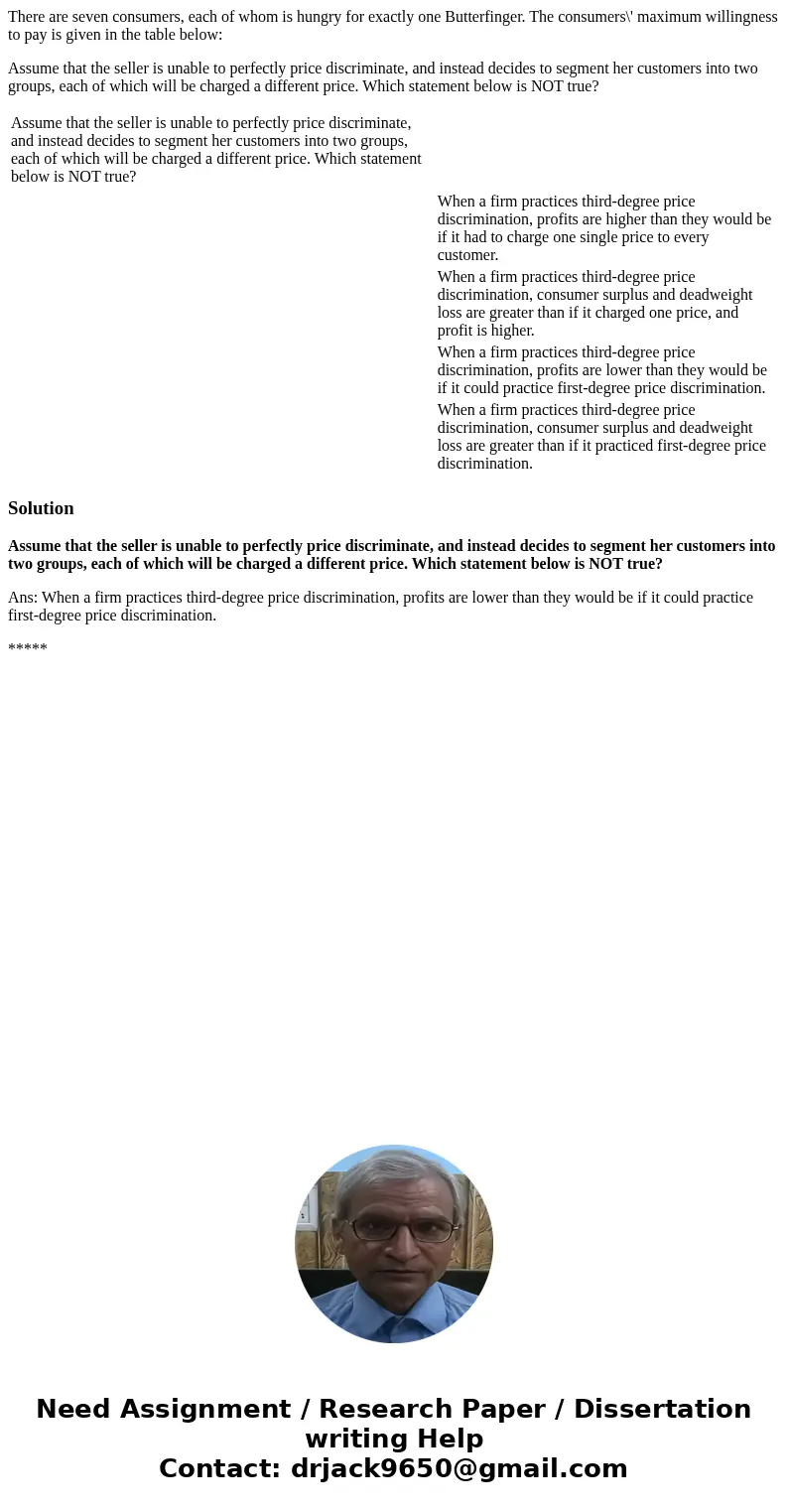There are seven consumers each of whom is hungry for exactly
There are seven consumers, each of whom is hungry for exactly one Butterfinger. The consumers\' maximum willingness to pay is given in the table below:
Assume that the seller is unable to perfectly price discriminate, and instead decides to segment her customers into two groups, each of which will be charged a different price. Which statement below is NOT true?
| Assume that the seller is unable to perfectly price discriminate, and instead decides to segment her customers into two groups, each of which will be charged a different price. Which statement below is NOT true? | |||||||||
|
Solution
Assume that the seller is unable to perfectly price discriminate, and instead decides to segment her customers into two groups, each of which will be charged a different price. Which statement below is NOT true?
Ans: When a firm practices third-degree price discrimination, profits are lower than they would be if it could practice first-degree price discrimination.
*****

 Homework Sourse
Homework Sourse